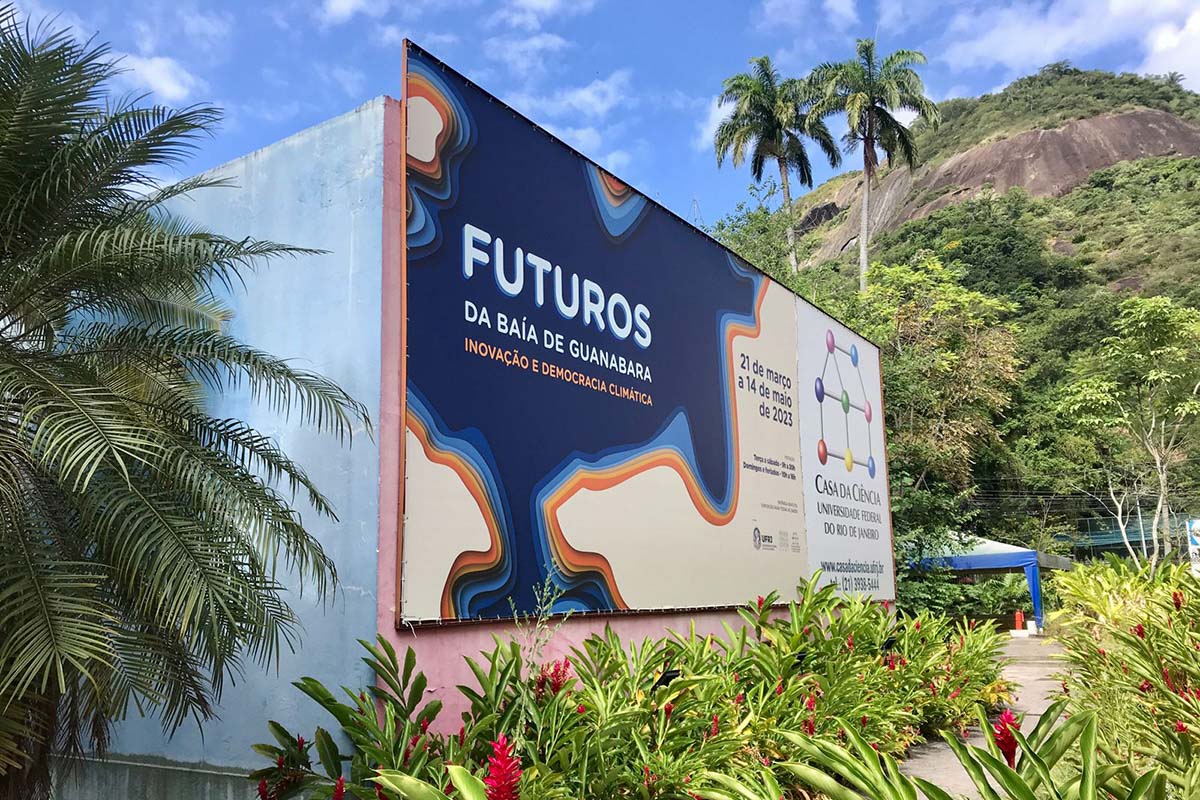exposure The Future of Guanabara Bay: Innovation and Climate Democracy It will open on March 21 at the Casa da Ciência of the Federal University of Rio de Janeiro (UFRJ), in Botafogo, and will run until May this year. The proposal is to show how climate change, today and in the future, will affect the areas around Guanabara Bay: people, cities, productive activities and local biodiversity.
The exhibition, which is free and open to the public, invites reflection: What is the role of universities like the UFRJ and our individual and collective decisions in confronting this phenomenon? The exhibition offers an immersive and interactive experience that brings audiences of all ages closer to the effects of the climate emergency. In addition, it seeks to show the importance of university research and technology for designing future scenarios and searching for solutions that can mitigate the climate crisis in Rio de Janeiro, Brazil and the world.
Guanabara Bay Futures It is curated by Leonardo Menezes, who is a postdoctoral fellow at UFRJ and served as Director of Knowledge and Creativity at the Museum of Tomorrow. exposure Guanabara Bay Futures It brings all the ecological and social complexities that this region has to offer within the state of Rio de Janeiro – and symbolically throughout Brazil. Menezes revealed that Guanabara Bay is characterized by economic and cultural diversity and activities that interact with nature’s resources and are highly affected by climate change.
The researcher added: “Universities and research centers are very important so that we can predict possible future scenarios and, based on this, create tools and solutions for adaptation to climate change – which will reach a greater or lesser extent.”
exposure Guanabara Bay Futures It is implemented by the UFRJ Science and Culture Forum (FCC), the body responsible for university cultural policy and scholarly publishing. The exhibition demonstrates the Forum’s keenness to promote discussions and initiatives with a social impact, such as defending the environment and our ecosystems. Preserving the bay is the responsibility of all of us, and the university is committed to that mission, said biologist and professor Christine Rota, FCC coordinator.
“The exhibition will address all environments in the Gulf, dealing with local biodiversity as well as problems related to humankind,” Rota stressed. During the exhibition months, parallel activities will also be carried out, such as workshops for children and youth, discussions with university students, conversation panels, lectures with academics, public sector managers and community leaders, book launches, art and cultural performances and podcasts. recordings alive.
Guided tours can be scheduled for groups of primary and secondary school students from public and private schools, and university students from various fields of knowledge and community groups, especially from around Guanabara Bay.
Click here to learn more about the exhibition.
| About the exhibition |
The Future of Guanabara Bay: Innovation and Climate Democracy
Dates: 3/21 to 5/14/2023
Visiting: from Tuesday to Saturday – from 9 am to 8 pm
Sundays and holidays – from 10 am to 4 pm
Venue: Casa da Ciencia – UFRJ Science and Technology Cultural Center
Rua Lauro Müller, 3, Botafogo – Rio de Janeiro / RJ
free entry
service
Press office: Bruna Rodriguez and Daniele Grazinoli
Emails: [email protected] and [email protected]
Phone: (21) 99992-4502 and (21) 99182-0555

“Hardcore beer fanatic. Falls down a lot. Professional coffee fan. Music ninja.”






More Stories
The law allows children and adolescents to visit parents in the hospital.
Scientists pave the way for the emergence of a new element in the periodic table | World and Science
Can dengue cause hair loss? Expert explains how the disease affects hair